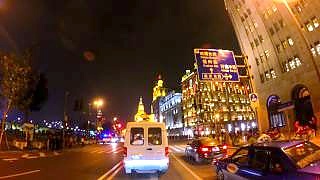Xi'An is the provincial capital of ShaanXi, central China.
August 13th 2016 : high heat alert - over 40C is seriously hot so take plenty of water (and some salty food).
Xi'An is one of the oldest cities in China and was known as Chang'An prior to the Ming dynasty. Indeed, Xi'An is the oldest of the Four Great Ancient Capitals of China, having held this position under several of the most important dynasties in Chinese history, including the Zhou, Qin, Han, Sui and Tang.
Xi'An was the eastern starting point of the ancient Silk Road trade route.
Xi'An is also home to the Terracotta Warriors of Qin Shi Huang, who became China's first emperor after the Qin (dynasty: 220 to 210 BC) conquered / unified all of the other Warring States. Rather than maintain the title of 'king' borne by the previous Shang and Zhou rulers, he created the title of 'emperor' (皇帝, HuángDì), which would continue to be borne by Chinese rulers for the next two millennia.
[640],shadow=true,start=,stop=Xi'an, located in the heart of Shaanxi Province in northwest China, is one of the oldest cities in China and served as the capital for numerous dynasties, including the Qin, Han, and Tang. Renowned for its rich history, cultural heritage, and iconic landmarks, Xi'an is a must-visit destination for tourists. Here's a guide for tourists visiting Xi'an:
Historical and Cultural Significance:
Ancient Capital: Xi'an served as the capital of China for over 13 dynasties and played a crucial role in shaping Chinese history and civilization. It was the starting point of the ancient Silk Road, facilitating trade and cultural exchange between China and the West.
Terracotta Army: One of Xi'an's most famous attractions is the Terracotta Army, a vast collection of life-sized terracotta sculptures depicting the armies of Qin Shi Huang, the first Emperor of China. Discovered in 1974, the Terracotta Army is a UNESCO World Heritage site and a symbol of China's rich cultural heritage.
Top Attractions:
Terracotta Army Museum: Located about 30 kilometers east of Xi'an, the Terracotta Army Museum is home to thousands of intricately crafted terracotta warriors, horses, and chariots. Visitors can explore the excavation pits, marvel at the craftsmanship, and learn about the history of the Qin Dynasty.
Ancient City Wall: Xi'an is renowned for its well-preserved ancient city wall, which dates back to the Ming Dynasty. Stretching over 13 kilometers in length, the wall offers panoramic views of the city and is a popular spot for walking, cycling, and sightseeing.
Muslim Quarter: Explore the vibrant Muslim Quarter, located near the Drum Tower and Great Mosque of Xi'an. This bustling neighborhood is known for its lively street markets, traditional Islamic architecture, and delicious street food, including lamb skewers, roujiamo (Chinese hamburger), and hand-pulled noodles.
Big Wild Goose Pagoda: Built during the Tang Dynasty, the Big Wild Goose Pagoda is a prominent Buddhist landmark in Xi'an. Visitors can climb the pagoda for panoramic views of the city or explore the surrounding temple complex and gardens.
Shaanxi History Museum: Discover the rich history and culture of Shaanxi Province at the Shaanxi History Museum. The museum houses a vast collection of artifacts, including ancient pottery, bronze ware, jade, and Tang Dynasty murals, providing insights into the region's heritage.
Practical Tips:
Transportation: Getting around Xi'an is convenient with its extensive public transportation system, including buses, taxis, and the Xi'an Metro. Bicycle rentals are also available for exploring the city at a leisurely pace.
Weather: Xi'an has a continental climate with hot summers and cold winters. The best time to visit is during spring (April to May) and autumn (September to October) when the weather is pleasant and comfortable.
Language: Mandarin Chinese is the official language spoken in Xi'an, although English may not be widely spoken, especially in more remote areas. It's helpful to learn some basic phrases or carry a phrasebook or translation app.
Currency: The currency used in China is the Chinese Yuan (CNY). Credit cards are accepted at most hotels, restaurants, and shops in urban areas, but it's advisable to carry cash for small purchases and transactions.
Xi'an offers a fascinating blend of ancient history, cultural heritage, and modern urban life, making it an enchanting destination for tourists seeking to explore the wonders of ancient China. Whether marveling at the Terracotta Army, walking along the ancient city wall, or sampling delicious street food in the Muslim Quarter, Xi'an has something to offer for every traveler.

 Xi’An 西安 – lively city !
Xi’An 西安 – lively city !




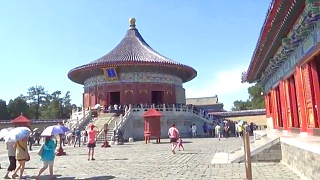


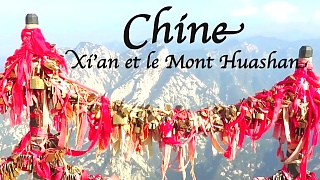

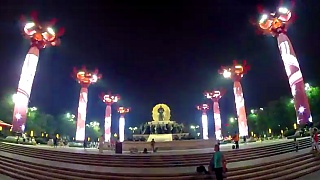
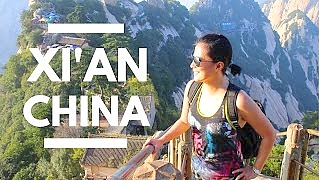
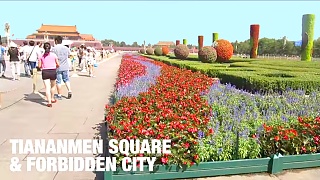

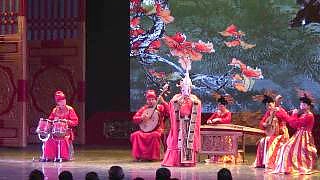


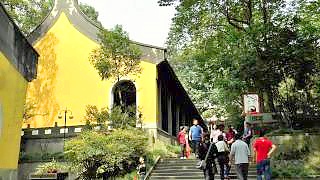


![No video in this post. At BB, we think this is something crucial to well-being and we`ll do our best to convey our experience ... The most important point is - don`t imagine that you can `fix` things - at the start, one needs 3 or 4 meetings to relax and know someone - but beyond that, if things are not going well, get out early; one cannot `fix` incompatibility, and certainly not a narcissist (they kind of know that they are wacko, but will never, ever admit it). `Love` shouldn`t require a lot of work; a bit maybe; but if one senses that it is all `one way`, or not going anywhere, quit. The relationship is very unlikely to get better; it almost certainly will get worse. Doomed. Save yourself years of wasted life. If you don`t, expect to become bitter and twisted yourself. At BB, we feel that health is THE foundation to all else, so we do cover health in this regard, although primarily a travel and culture site. Thousand page books are not our thing; we get straight to the point. If you want to delve deeper, consider this - why is a relationship so important to you ? Going beyond `animal instincts` is beyond many - they never really mature. If the immature instinct is made the `gold standard`, what can one expect ? If one cannot go beyond the animal brain, one is f****d [animal brain lingo]. The thing is, bad relationships that progress to having kids, can produce sad / bad kids (that may have to endure two decades of emotional abuse). And likely to repeat the cycle, and possibly go into politics, etc. - hence, it is very important to not be a part of this. Maybe, romantic `love` is simply the grand distraction meme that helps keep the elite in power. Relationships not going well – BB’s take – quit early](https://www.beijingbuzzz.com/choral3.jpg)


